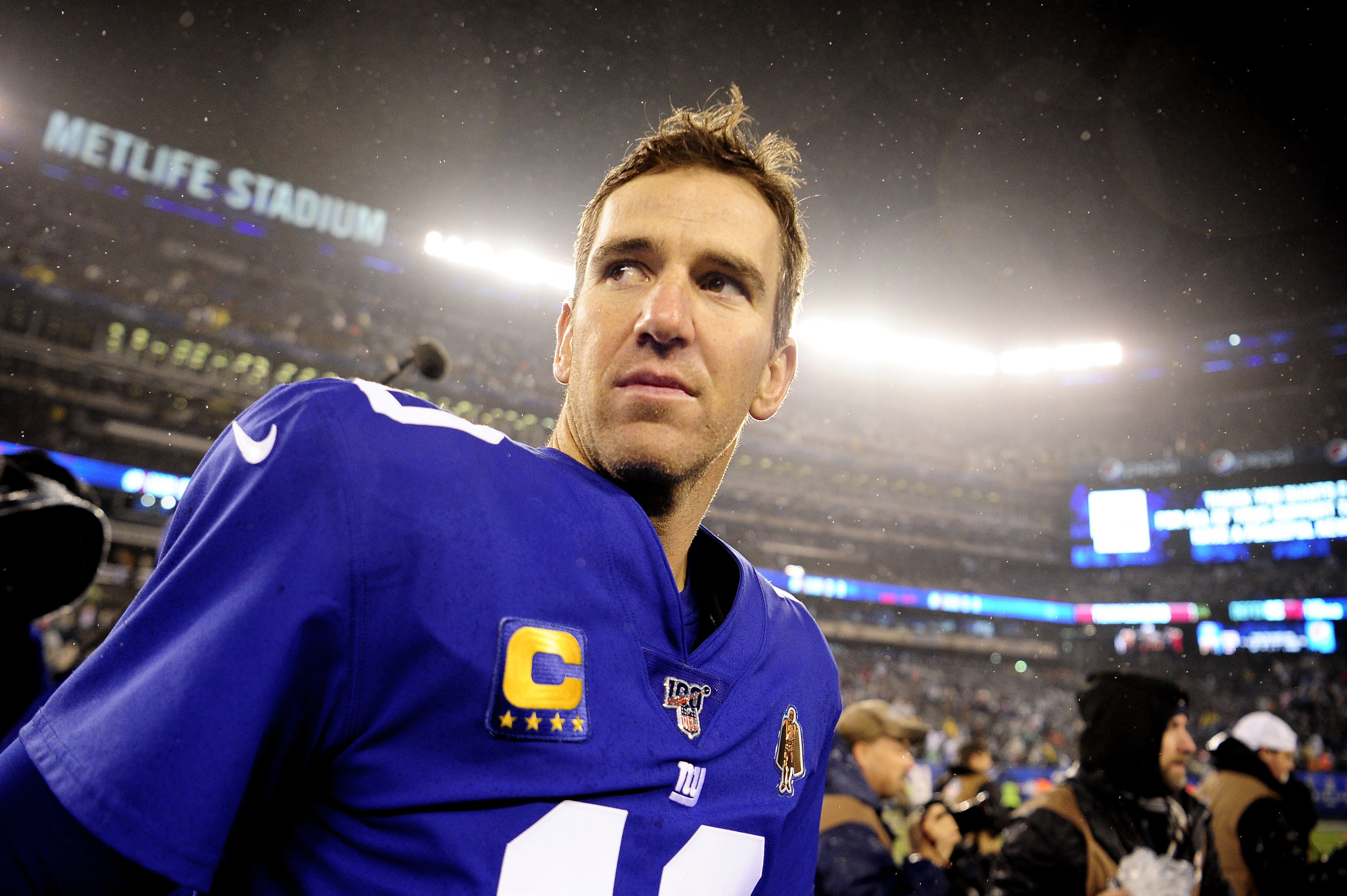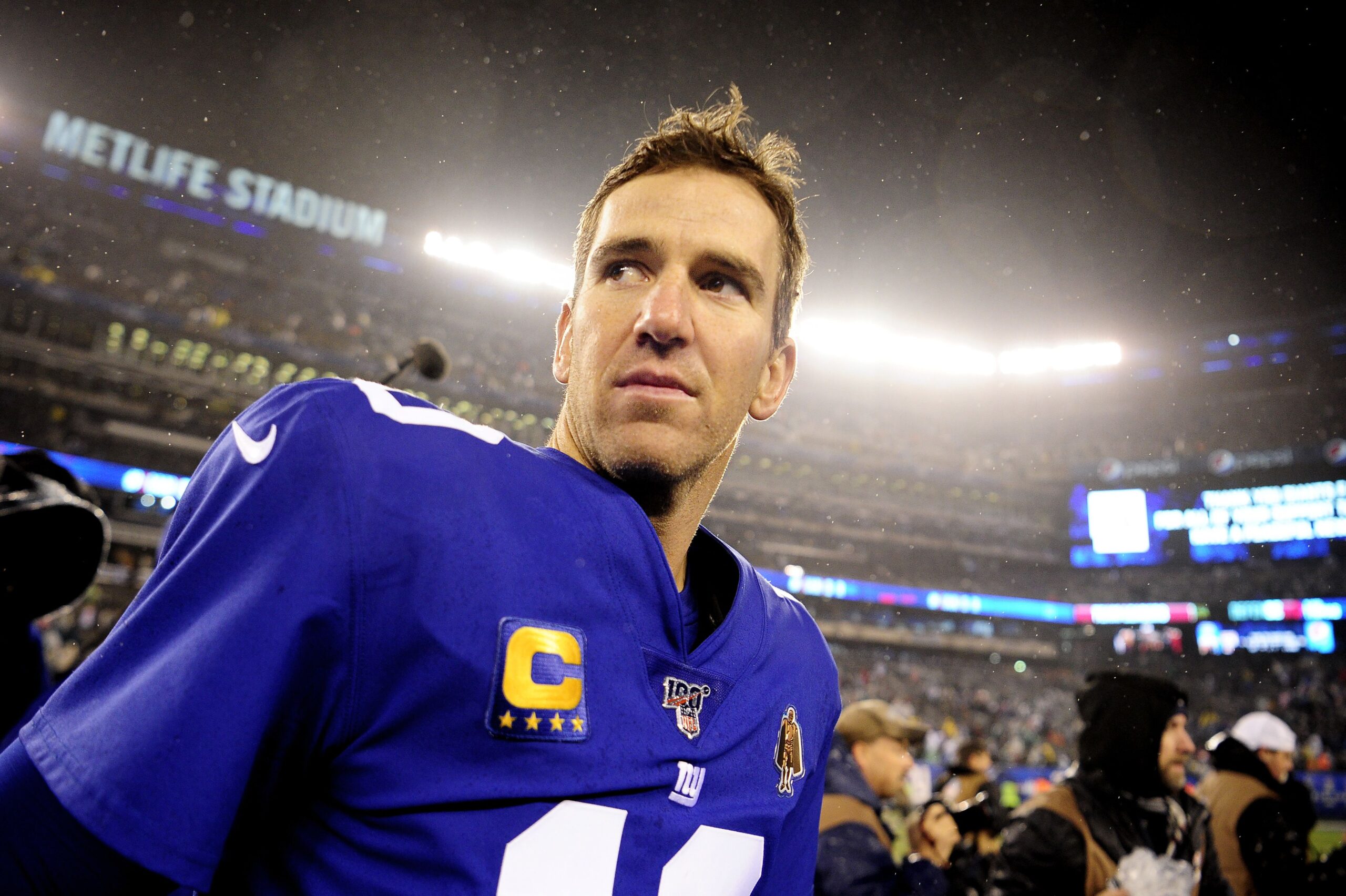Despite being one of the most influential and clutch quarterbacks of the 21st century, Eli Manning has found himself excluded from Pro Football Network’s (PFN) list of the top 25 quarterbacks since the year 2000. This is particularly surprising given his two Super Bowl titles with the New York Giants, both of which came in dramatic victories over Tom Brady and the New England Patriots. Yet, PFN’s rankings are not based on opinion or accolades, but rather a proprietary statistical formula called “QB+,” which focuses heavily on advanced metrics.
According to PFN, the QB+ metric evaluates quarterbacks using a blend of statistical factors, such as performance under pressure, third-down conversion rates, pocket production, and an attempt to quantify clutch play based on game situations. Even with clutch moments being a component of the grading formula, it seemingly didn’t boost Manning’s standing enough to earn him a place on the list — a surprising omission for someone who built a reputation on late-game heroics.

While Eli Manning was absent from the rankings, three quarterbacks with connections to the Giants organization made the cut: Kurt Warner (18th), Russell Wilson (21st), and Jameis Winston (24th). Warner’s inclusion is understandable given his Hall of Fame career, although his brief stint in New York was cut short by Manning’s emergence as a rookie. Wilson, meanwhile, was praised for his durability and solid passer rating despite declining efficiency in recent years. His clutch factor, particularly in close games, contributed to his placement.
The real head-scratcher for many fans and analysts is the inclusion of Jameis Winston over Eli Manning. Winston, often viewed as a former first-round disappointment, has largely served as a backup in recent years. PFN admits his inclusion was “surprising,” but points to specific efficiency metrics like expected points added (EPA) from a clean pocket and strong starts in the first half of games. However, critics argue that these numbers are not enough to justify ranking Winston above a two-time Super Bowl MVP.
Beyond Manning, PFN’s list also omits several other quarterbacks with strong legacies, raising questions about the overall reliability of the QB+ model. While the formula may spotlight certain statistical trends, it seems to downplay the significance of playoff performance, career longevity, and team impact, all areas where Manning excelled.
Notably, Tom Brady, the most decorated quarterback in NFL history, only landed at sixth on the list. Peyton Manning, Eli’s older brother, topped the rankings, while Tony Romo and Dak Prescott of the Dallas Cowboys placed 8th and 13th respectively. Jalen Hurts of the Eagles came in at 11th, and Philip Rivers, whom Eli was originally traded for on draft day, finished 14th.
Ultimately, PFN’s QB+ rankings aim to provide a data-driven perspective, but Eli Manning’s exclusion — especially when stacked against names like Winston — only adds fuel to the ongoing debate over how we define quarterback greatness in the modern NFL.










